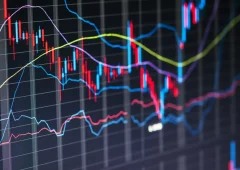OKX Shuts Down DEX Aggregator After EU Probe
17.03.2025 16:00 1 min. read Alexander Stefanov
OKX has taken its DEX aggregator offline after an EU investigation uncovered its role in laundering funds from the $1.5 billion Bybit hack.
The exchange claims North Korea’s Lazarus Group exploited its DeFi services to move stolen assets.
To address regulatory concerns, OKX has opted for a temporary shutdown while enhancing security systems. The company has introduced real-time tracking of hacker wallets and an address-blocking mechanism for its Web3 platform. While stressing that it does not hold customer funds, OKX describes its Web3 wallet as a gateway to decentralized trading across multiple blockchains.
Beyond the EU, the exchange is facing scrutiny elsewhere. It recently paid $84 million to settle a U.S. probe, adding to the mounting regulatory pressure.
Meanwhile, European policymakers worry about the U.S.’s relaxed crypto stance under President Donald Trump. ECB official Francois Villeroy de Galhau has warned that the U.S.’s hands-off approach could trigger financial instability, drawing parallels to past crises that started in America. Despite global uncertainty, Europe continues to strengthen its regulatory grip, positioning itself as a leader in crypto banking.
-
1
Polygon Breaks from Decentralization as Sandeep Nailwal Assumes Full Control
11.06.2025 20:00 2 min. read -
2
KuCoin Plants Its Flag in Bangkok With a Licensed Thai Exchange
14.06.2025 13:00 1 min. read -
3
Nvidia CEO Urges UK to Invest in AI Infrastructure or Risk Falling Behind
10.06.2025 9:00 1 min. read -
4
Why Gold Could Be the Smart Play Amidst US Debt Surge
11.06.2025 11:00 1 min. read -
5
Warren Buffett Narrows His Bets as He Prepares to Step Down
14.06.2025 16:00 2 min. read
What Brian Armstrong’s New Stats Reveal About Institutional Crypto Growth
Coinbase CEO Brian Armstrong has spotlighted a significant acceleration in institutional crypto adoption, driven largely by the surging popularity of exchange-traded funds and increased use of Coinbase Prime among major corporations.
What Will Happen With the Stock Market if Trump Reshapes the Fed?
Jefferies chief market strategist David Zervos believes an upcoming power shift at the Federal Reserve could benefit U.S. equity markets.
U.S. Bank Advises Clients to Drop These Cryptocurrencies
Anchorage Digital, a federally chartered crypto custody bank, is urging its institutional clients to move away from major stablecoins like USDC, Agora USD (AUSD), and Usual USD (USD0), recommending instead a shift to the Global Dollar (USDG) — a stablecoin issued by Paxos and backed by a consortium that includes Anchorage itself.
Vitalik Buterin Warns Digital ID Projects Could End Pseudonymity
Ethereum co-founder Vitalik Buterin has voiced concerns over the rise of zero-knowledge (ZK) digital identity projects, specifically warning that systems like World — formerly Worldcoin and backed by OpenAI’s Sam Altman — could undermine pseudonymity in the digital world.
-
1
Polygon Breaks from Decentralization as Sandeep Nailwal Assumes Full Control
11.06.2025 20:00 2 min. read -
2
KuCoin Plants Its Flag in Bangkok With a Licensed Thai Exchange
14.06.2025 13:00 1 min. read -
3
Nvidia CEO Urges UK to Invest in AI Infrastructure or Risk Falling Behind
10.06.2025 9:00 1 min. read -
4
Why Gold Could Be the Smart Play Amidst US Debt Surge
11.06.2025 11:00 1 min. read -
5
Warren Buffett Narrows His Bets as He Prepares to Step Down
14.06.2025 16:00 2 min. read


